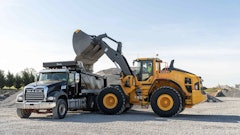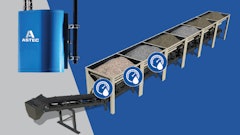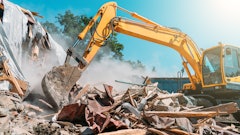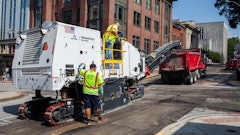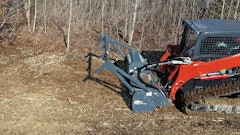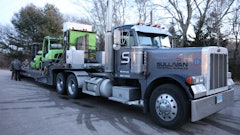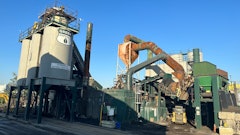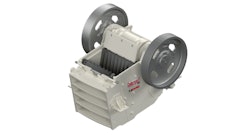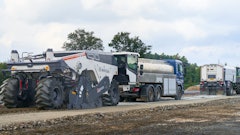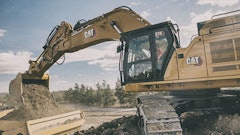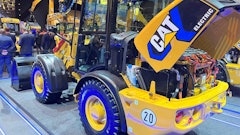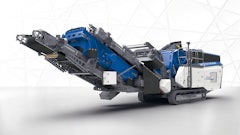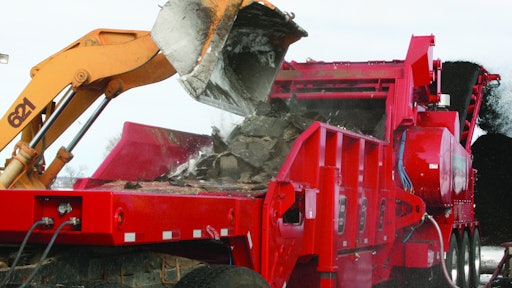
Recycling is not only the right thing to do, it can improve your bottom line. Improvements in recycling techniques mean less C&D waste is ending up in landfills. In fact, more than half of all C&D waste can be recycled into usable commodities that replace virgin materials and either add revenue streams or cut costs. The following companies have found ways to do just that through their own recycling operations.
Recycling boosts profits
Carolina Clearing and & Grading, Charleston, SC, recently switched its focus to adapt to a changing marketplace. An emphasis on wood recycling has allowed it to downsize and prosper.
Previously, the company specialized in turnkey site work, but this was a labor and equipment intensive approach. It owned an extensive fleet and employed 47. In addition to the high overhead, it was at risk as the site development market dried up.
Carolina Clearing & Grading realized a new approach was in order, and the wood recycling industry provided the perfect opportunity. It already owned a Vermeer TG7000 tub grinder, which it now uses to go to different municipal and independently owned landfills to grind their wood waste product for them on site.
There have been many advantages to this new direction. "Working for the municipalities, when we are halfway done, we turn a purchase order in and by the time we get done, we have a check," says Bob Dotson. "It is guaranteed money."
And the company's profits are higher than ever. "We are making more profit now," says Dotson, noting that margins were much tighter on site work. "The company was doing millions of dollars worth of work. But once you start paying all of the guys, paying for wear and tear on the equipment, paying for all of the fuel -- before, on a $100,000 job, after everything is paid out, you might make $15,000."
Carolina Clearing & Grading has been able to reduce head count to two workers. It has also reduced the amount of equipment required. "Mostly, we are using a John Deere 270 excavator and a 624 loader with a grapple bucket," Dotson says. "We just have the two pieces of equipment and the grinder on site."
The grinder and equipment are moved from one landfill to another. "We usually set up on a few thousand ton basis," says Dotson. The landfills weigh the material coming in. "When they get to a 2,000-ton level, that is our minimum. We move the equipment in and do the grinding. On average, we can knock out 2,000 tons in about a week as long as we don't have any breakdowns."
Cut disposal costs
Wood mulch is rapidly becoming a desirable commodity. But grinders are an expensive investment and won't make economic sense unless you have the volume to keep them busy. Thus, many contractors across the country are looking for clean sources of wood to keep their grinders fed.
One such contractor is Illinois-based Wood Recyclers, which owns a 1,050-hp Vermeer HG8000 grinder. "In certain applications, we can do 500 or 600 yds. an hour," says Bob Piekarski. "For us, it is a good combination with our tree service division. We generate a lot of material. If someone were to do it on their own, it may not be enough to keep them sustained.
"It is such a large machine," he continues. "There are a lot of times when people with smaller machines are running eight hours a day trying to keep up with grinding. This machine is so efficient and so fast, you can grind for a quarter of the day and load trucks and do colored material the rest of the day."
Wood Recyclers will grind any wood product as long as it is clean. "Everything we bring into the yard is 100% recyclable," says Piekarski. "We turn our end product into mulch, depending upon what the end use is. That is why it is crucial for our customers to get it 100% clean. Nails are not a big deal because we have magnets on our machines, but as far as anything else, we should have it clean."
Wood Recyclers makes it easy for any size contractor to recycle wood waste. If the project is large enough, it can set up on site. But for most projects, it supplies 20-, 30- and 40-yd. dumpsters that are dropped off and picked up, or contractors bring material into the yard themselves.
"For contractors, we offer a lower disposal cost instead of going to the landfills," says Piekarski. "Construction material can be $50 to $60 a ton per disposal. If you start talking a semi load of trees and logs, you start getting into some big numbers.
"As word of mouth spreads, we get more people coming our way," he adds. "With fuel costs and disposal costs going up, it is a better alternative."
Piekarski advises finding a firm in your area that already has a grinder in place. "If you have someone close enough to you, it is going to end up being cost efficient as opposed to taking it to a landfill," he states. "Our society is going through natural resources like Grant went through Richmond, so we have to do everything we can to recycle and do things properly."
Millings equal profit
Commercial Asphalt operates 10 stationary asphalt plants in Minnesota's Twin Cities. Getz crushers are in line with its plant. "We are unique in that we do not lay any asphalt, so we give people credit for millings," says Todd Laubis, director of operations for commercial asphalt.
Over 90% of customers take advantage of the credits. "The top 10 asphalt contractors in the metro all have their own milling machines," says Laubis. Most will also rent the machines out when not needed for their own projects.
Credits are dependent on both quantity and quality. "It varies on the quality and the volumes of material," Laubis says. "If it is a state job, it is typically going to have better quality aggregates in it vs. something coming off a parking lot. That kind of determines how much credit we give."
How the material is milled also makes a difference. "We go around and monitor our customers' milling operations to make sure they are not cutting too deep and bringing back contaminated material," says Laubis. "We have to go out and let them know when they are getting too deep and when we are going to start rejecting material. If it is contaminated with rock, it becomes base material. You also get guys who are milling too fast, or they are just in poor quality asphalt and the milling become to chunky."
It is important to efficiently handle millings. "We try not to process them anymore than we have to, so we just take the millings out of a pile and put those into the plant," says Laubis. "Anything that is oversized is dropped into the Rubble Hog. Those have a 3/4-in. grate in them. Everything is processed at 3/4-in. minus."
With the price for oil used in asphalt production now in the $400/ton range, recycling makes a lot of sense. "We virtually put recycled material into all of our products last year," says Laubis. "It has no impact on quality and in many cases makes it better. The state requires 70% of liquid AC be virgin and the rest can be made up by using the oil in recycled asphalt or AC from shingles. Due to those requirements, we have limited ourselves to 30% recycle."
Just like any commodity, supply and demand drive prices for millings. "We will offer more when we are getting short and less when we are getting full," says Laubis.
Shingles reduce asphalt cost
Greenville Paving & Contracting has made an investment in the long-term viability of recycled asphalt shingles. "The shingles contain a tremendous amount of liquid asphalt -- on average, anywhere between 20% and 23% liquid is inside the shingles," says James Ross, asphalt/quality control manager. "If I can get those shingles into my mix and recoup some of that liquid, I do not have to buy it."
For example, it typically takes 400 tons of liquid asphalt to make 10,000 tons of mix. Using shingles can reduce that to 350 tons. "That is 150 tons I don't have to buy at $400 a ton. So the savings is in the liquid that is in the shingles," Ross states. "As an asphalt contractor, you look at what it costs you to make a ton of mix. On average, by using tear-off shingles, you are looking at maybe $1 to $2 savings per ton by using that shingle in the mix. If I can save $1 to $2 on every ton of asphalt I make, that is certainly worth it in the long run."
Two years ago, asphalt binder went as high as $800 a ton. That makes an even stronger case for recycled asphalt shingles. "There is also an added benefit because you get fibers in the shingles," says Ross. "So now you get that bonding strength that helps hold the mix together."
But getting into recycled asphalt shingle mix production is not easy. First, you need to secure a clean source for shingles. "If you open it up to allowing anybody to bring you shingles, you must get yourself permitted through waste management to be a landfill yourself," Ross points out. "People will bring everything from the back door to the kitchen sink in it."
That's where a relationship with a landfill proves beneficial. "There are an estimated 11 million tons of tear-off shingles dumped in our landfills annually," Ross comments.
The biggest barrier, however, is the sampling and testing required before you can grind shingles. While the use of asbestos in shingles was banned in the early 1980s, it can be difficult to know where the shingles came from and how old they are. This means they must be tested per EPA guidelines to make sure those containing asbestos don't end up in the grinder.
"Asbestos in not an issue as long as the shingle is in a solid state," says Ross. "[But] when grinding the shingle, if there is asbestos, it becomes airborne.
"For an asphalt contractor, the biggest hurdle is being able to get these shingles, get them sampled and then get them tested," he cautions. "That can be expensive."
Consequently, Ross and another employee became certified to test for asbestos in shingles according to an EPA method. Ross also became accredited by the State of North Carolina as an inspector.
This eliminated the need to hire contract inspectors and testers. "I was able to knock all of that out and not incur that expense," says Ross. "Of course, there was expense in getting certified. There was the estimated cost of between $20,000 and $30,000 to buy laboratory equipment required to test for asbestos. But once you incur that cost, it eventually pays for itself.
"We go through a serious routine before we grind anything [to make sure] there is no asbestos present," says Ross. "We do not want to be putting material into an asphalt mix on a highway that may have asbestos."
Greenville Paving offers a solution for contractors that don't have the resources to make this kind of up-front investment. "Those companies that do not wish to get that involved in it, but want to use the product, will call somebody like me and ask if I have some processed shingles ready for mix design or incorporated in the asphalt mix they can buy," says Ross, adding, "If the average asphalt contractor were to use tear-off shingles in their mixes, it would certainly be beneficial to them."
Recycling C&D
"Dem-Con Companies is a third-generation, family owned and operated construction and demolition recycling company," says Jason Haus, CEO.
The company started grinding shingles about three years ago. "We have been working with Rotochopper extensively as far as utilizing their grinders on site, as well as taking advantage of the portability of the grinding units," says Haus. "We perform mobile contract grinding services around the country. We have multiple shingle grinders that are mobile and allow us to service all areas of the country."
Dem-Con typically keeps one grinder on site at all times to service local customers. A second machine travels throughout the U.S. "We have serviced the Southeast as well as the Northwest, and are able to travel to all markets to service those that wish to hire a contract grinder vs. spending the large amount of capital it takes to process the material themselves," Haus states.
He adds, "In this economy, people are not interested [in going] out to spend the kind of money that it takes to put equipment in place to process shingles. So they are more willing to hire a contract grinder like Dem-Con."
The company's shingle grinding equipment includes a Rotochopper RG1 built specifically for grinding shingles, and a Rotochopper B66, which was initially designed to process wood materials. However, Rotochopper has designed a specialized package that allows the B66 horizontal grinder to process shingles in an efficient and cost-effective manner.
"If you use a wood grinder and try to grind shingles, you are usually not very successful," says Haus. "It becomes very costly, as the wear parts for wood materials are designed much differently than for shingle processing."
Dem-Con Companies has built a business out of recovery of construction materials. "Compared to five years ago, our industry and our company have come a long way. Our recovery rate for November was over 71%," says Haus. "We have recovered everything that we know has an end market in our area."
But while there is a profit stream for recycled materials, the margins are small and volume is the key to success.
"All of the materials that we are selling on the back end are commodities," Haus points out. This makes it difficult for individual contractors to invest in the equipment necessary for recycling. "It is cost prohibitive for everyone to do it. You need a fully functional, all day/every day type of operation to make the economics work."








